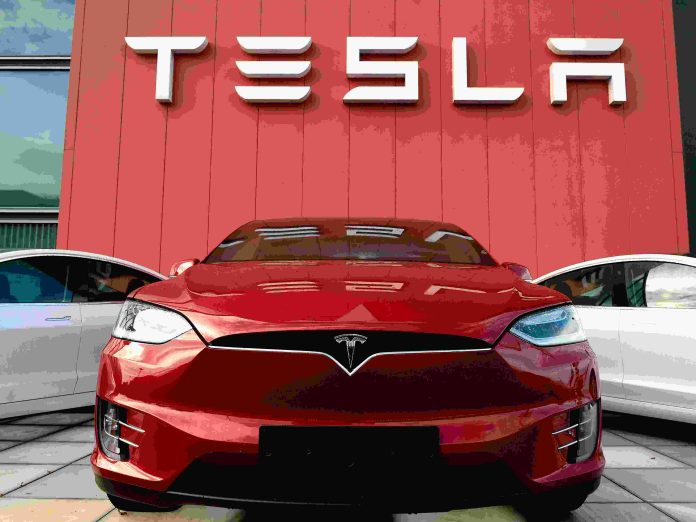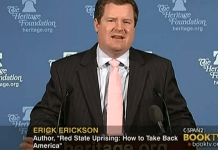Tesla, the famous electric carmaker led by Elon Musk, has been given the green light to expand its factory in Gruenheide, Germany. This decision, approved by the local council, has sparked significant controversy and protests from environmental activists.
On a recent Thursday evening, the councilors of Gruenheide, a municipality just outside Berlin, voted on Tesla’s expansion plan. The vote ended with 11 councilors in favor, 6 against, and 2 abstentions. This decision allows Tesla to proceed with its plan to expand the factory grounds by adding a freight depot and additional logistical space.
Originally, Tesla’s proposal involved clearing over 100 hectares (247 acres) of forest. However, due to strong opposition, the plan was scaled down to reduce the number of trees that need to be felled. This compromise was an effort to address environmental concerns while allowing Tesla to continue its expansion.
The expansion has been met with persistent protests from environmental activists. Since February, activists have been demonstrating in a forest near the Tesla plant. They are concerned about the impact on local water resources and deforestation. In an effort to protect the forest, some activists built tree houses in the area, which led to a court ruling that police cannot remove these tree houses for now.
A group called “Stop Tesla” has been at the forefront of the protests. They expressed disappointment with the council’s decision and vowed to continue their demonstrations. Their statement emphasized the need to protect the water and the forest, highlighting their commitment to environmental preservation.
While activists are unhappy with the decision, the state government of Brandenburg, where Gruenheide is located, welcomed the council’s approval. Jörg Steinbach, the regional economy minister, described the decision as a positive step for the future development of Gruenheide and Tesla. This sentiment reflects the local government’s support for economic growth and job creation associated with the Tesla factory.
The controversy surrounding Tesla’s expansion is not new. In mid-February, a nonbinding vote by Gruenheide residents rejected the original proposal. This vote was a clear indication of local opposition to the extensive deforestation that the expansion would require.
Moreover, in March, the factory experienced a significant disruption when a suspected arson attack on an electricity pylon caused a power outage. The attack, claimed by a far-left group, knocked out power supplies to the Tesla factory for nearly a week, halting production. Elon Musk, Tesla’s CEO, responded strongly to the incident, calling the attackers “the dumbest eco-terrorists on Earth.” He argued that protesting against electric vehicle production was misguided, as electric cars are part of the solution to reducing fossil fuel dependence.
The main concerns of the activists revolve around the environmental impact of Tesla’s expansion. The forest area near the factory is seen as crucial for local biodiversity and water conservation. Clearing a large part of this forest for the expansion could disrupt local ecosystems and affect water resources, which are already a contentious issue in the region.
Activists argue that the forest acts as a natural water reservoir, helping to maintain the water table and support local wildlife. They believe that Tesla’s expansion could lead to significant environmental degradation, including loss of habitat for various species and potential water shortages.
From Tesla’s viewpoint, the expansion is necessary to support its growing operations in Europe. The factory in Gruenheide, which opened in 2022, is Tesla’s first manufacturing plant in Europe. It plays a crucial role in producing electric vehicles for the European market. The addition of a freight depot and logistical space is seen as essential for improving efficiency and meeting increasing demand.
Tesla also argues that its presence in Gruenheide brings significant economic benefits, including job creation and technological advancements. The company believes that these benefits outweigh the environmental concerns, especially given its focus on producing environmentally friendly electric vehicles.
The situation in Gruenheide highlights the ongoing struggle to balance economic development with environmental conservation. On one hand, there is a strong push for industrial growth and job creation, which are seen as vital for the local economy. On the other hand, there is a pressing need to protect natural resources and ensure sustainable development.
The decision to scale down the original proposal by reducing the number of trees to be felled is an attempt to find a middle ground. However, it remains to be seen whether this compromise will be enough to satisfy both Tesla’s needs and the concerns of the environmental activists.
As Tesla moves forward with its expansion plans, the company will need to navigate the ongoing protests and environmental concerns. Building a positive relationship with the local community and addressing environmental issues will be crucial for long-term success.
For now, the approval from the Gruenheide council marks a significant step forward for Tesla. The company can proceed with its plans to enhance its production capabilities in Europe. However, the continued opposition from activists suggests that the controversy is far from over.
The story of Tesla’s expansion in Gruenheide is a complex one, involving economic ambitions, environmental concerns, and local politics. It reflects the broader challenges of balancing industrial growth with sustainability. As Tesla continues to expand its footprint in Europe, the company will need to find ways to address the environmental impacts and build trust with the local community. The outcome of this situation could serve as a valuable lesson for other companies facing similar challenges around the world.























